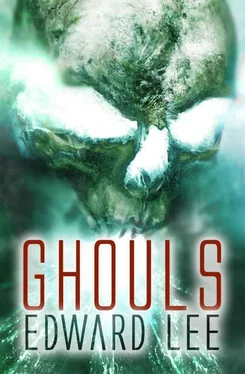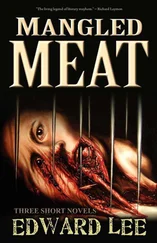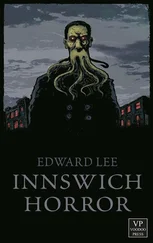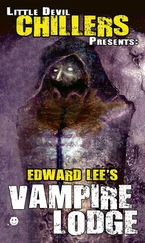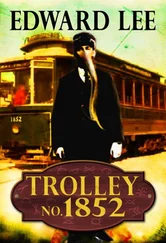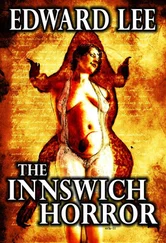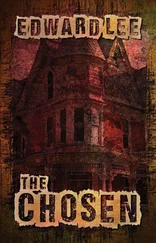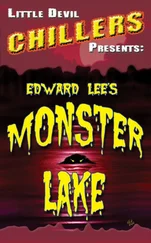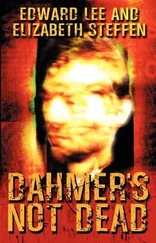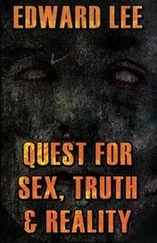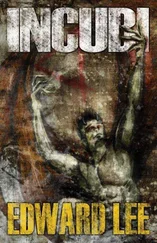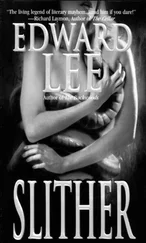Outside, he locked the door, looking quickly left and right. He closed the glass-louvered storm door and affixed a piece of Scotch tape across the gap, a simple but proven tactic. He didn’t like unexpected guests.
He had only general knowledge of where he was going, though it couldn’t be far, according to the signs. He drove steadily but unhurried. A county police cruiser screamed past on the right with its light flashing. It gave Sanders a momentary, thrilling jolt. Must be on his way to a fletch party, he thought. That’s what the Saigon prostitutes had called it. “Fletch for extra dorra, G.I.!” Animals. He watched the cruiser’s taillights go tiny and vanish over the slow rise of the highway. It reminded him that he would have to be careful on all accounts.
It reminded him of the spontaneity he’d known all his life. Spontaneity such as this. He’d always loved a gamble, and he was always hearing how gamblers were all looking for the same thing—they were looking to lose. On a moment’s notice he could pull a U at the next light, return the weapons and the station wagon, and be on the next 707 to Florida. It would be easy.
His life had been a string of gambles, and he’d always won. Was this really so different? He was blind, he was conspicuous, he didn’t know for the life of him what he was walking into. Maybe I am looking to lose. He didn’t care about the money, or evening the score. He didn’t care about what had happened to his face, the restless memories, or how he had spent the last seven years.
He didn’t care about any of that.
So why go?
But he was going to do it. He just had to know.
Route 301 rolled on, barren and perfectly straight. The only other vehicles he saw were a couple of refrigerated semi rigs. They roared up out of the dark, huge and unheeding, oblivious to the 50 mph speed limit, and were gone as fast the police car. A traffic light twinkled from far up the road, and then a big green sign: TYLERSVILLE, NEXT LEFT.
He made the turn and crossed town limits on an incline. The cant of the road made him feel as though he were ascending. He passed an old muddy-colored restaurant, a shopping plaza and several apartment complexes, all glowing murkily within the perimeter of vapor lamps. Then a quarter mile of darkness until a road sign: MD RT 154. From what he made of his map, Tylersville existed entirely along this queer forested lane, where it all but isolated the town. There was very little open land, just some clearings and some cramped cornfields. For the most part though, Route 154 seemed to plow through woods. He wondered where the population lived.
Clouds lolled overhead, blotching the twilight. Way off and up in the distance, he saw the flashing red aerial lights of a television tower, though it seemed peculiar to him that such a thing would be located so remotely. The road continued its steady rise, then at last began to even out and bend and turn. Now he noticed houses set back in the woods, quite a few of them, made discernible by porch lights and softly lit windows. It seemed that the trees were gradually growing around the houses, as if to keep them out of sight.
Originally he wanted his first exposure to Tylersville to be under the cover of darkness, but now he was beginning to think he’d made a mistake. This “town” was dead, just sullen houses screened by trees and this long twisting stretch of misplaced highway.
But around the next bend he found what he was looking for. Hard, pounding music drifted into the car, rapidly increasing in volume as he cleared the turn. A giant sign on posts loomed straight up, and red neon letters buzzed and quivered like blurred vision, THE ANVIL, BEER TO GO, TOPLESS DANCING NOON TIL 2.
Sanders grinned and touched the brakes. He pulled in.
Jacked-up cars and pickup trucks filled the gravel lot. Two derelict youths stumbled between the cars, their faces drained by inebriation. Pitiless, Sanders shook his head, remembering years ago when he must’ve looked the same. He squeezed the station wagon between an old blue Ford and a van with things like portholes on the sides.
In the bar, rock music assaulted him. It pounded and beat and blew into his face like a gust of wind. Cigarette smoke crept toward the ceiling; from all sides rose the smell of old beer, dust, and tobacco. Sanders’s brow hardened. A fat, bearded bouncer stared at him from a stool by the door.
Standing in place, Sanders looked over the interior, facing a swarm of backs. There must’ve been a hundred people stuffed into the place. Waitresses had to squeeze between tables, like acrobats on balance beams. The clientele consisted mainly of rambunctious youths and dour, calloused working-class types. They whooped, chortled, and shouted at each other over the awful music.
Sanders felt tempted to leave. This was just a frowzy Maryland strip joint. The walls were white-painted brick, which flaked like shedding scales. Elevated against the rearmost wall was the dance stage, drowned in throbbing light and occupied now by a skinny coif haired brunette. There was something obscene about the girl’s nakedness; she was nearly breastless, her body smooth, inchoate, only vaguely female. She danced off balance and guessing her steps, like a girl just off a roller coaster.
“Sit down or split,” the bouncer said behind him.
Sanders turned. He didn’t like civilians telling him what to do. “Eat much?” he said. “Christ, buddy, you’ve got enough lard on you to sink the Nimitz.”
“Find a seat or get out,” the bouncer said.
“I’ll find a seat when I’m ready, creamcake. You’re welcome to throw me out, if you think you can. If not, then shut your fat face. Or I’ll shut it for you.”
Sanders waited to be “bounced,” but it didn’t happen. The bouncer just sneered from his perch atop the stool. Sanders wouldn’t have cared either way.
Taking his time, then, he wended into the crowd. Most of the tables were full, but in a far corner he spotted a guy who’d managed to get one to himself.
“Mind if I sit here?”
“Feel free,” the guy said. He smiled and halfheartedly raising a bottle of Stroh’s. Sanders felt discomposed by this man’s eyes, they were tired and weary and didn’t look right on his face. He slid into the seat and said, “I’m surprised they don’t make you take a number here.”
“This is about as busy as the Anvil gets,” the guy told him. “Not that I make a habit of coming here—it’s the only place in town where you can get a cold beer. Not a bad hang-out, actually, if you don’t mind hourly brawls, sky-high prices, and the atmosphere of a cockfight arena.” He sipped his beer soberly and went on. “You from around here? I don’t recall seeing you before.”
Could you forget a face like this? Sanders thought. The guy’s foresight amused him. “I’m just passing through… Name’s John.”
“Kurt Morris,” the guy said, and extended a hand over the table. “I’m a Tylersville original.”
This guy seemed amiable enough, and much different from the rest of the rabble. It bothered Sanders, though; Morris seemed ostracized here, shunned, yet content to sit by himself in this wreck of a bar. Perhaps it was his “oneness,” like Sartre’s protagonist in Nausea, or who the hell knew? But Sanders decided he liked Kurt Morris.
He ordered a Coke from a plump, boat-hipped waitress. He hoped she wouldn’t accidentally hit him in the head with her breasts, which were enormous. “Teetotaler,” he said to Kurt.
“It doesn’t matter what you order here,” Kurt informed, lighting a cigarette and speaking at the same time. “Beer, Coke, glass of water. It’ll still cost you three bucks a toss.”
“Pirates.”
Читать дальше
